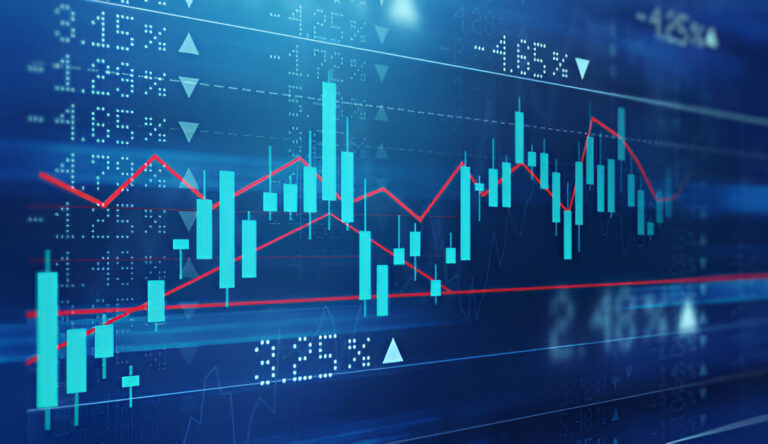The trading landscape has undergone significant transformations over the past few decades, primarily driven by innovations in financial technology (fintech). As we move further into the digital age, these advancements are reshaping how investors and traders operate, making financial markets more accessible, efficient, and data-driven. This article explores the key innovations in fintech that are set to redefine the future of trading.
1. Algorithmic Trading
One of the most notable innovations in trading is the rise of algorithmic trading. Algorithms enable traders to execute trades based on predefined criteria, allowing for rapid transaction execution that would be impossible for humans. This technology analyzes vast amounts of market data in real time, making split-second decisions based on patterns and trends. Additionally, investors looking to diversify their portfolios can also benefit from algorithmic trading strategies when they choose to invest in mutual funds, as these strategies can optimize fund performance.
Benefits of Algorithmic Trading:
- Speed and Efficiency: Algorithms can process information and execute trades in milliseconds, significantly reducing the time it takes to capitalize on market opportunities.
- Reduced Emotional Bias: Automated trading removes the emotional aspect of trading, which can often lead to poor decision-making.
- Backtesting Capabilities: Traders can test their strategies against historical data to evaluate performance before deploying them in real markets.
2. Artificial Intelligence and Machine Learning
Artificial intelligence (AI) and machine learning (ML) are increasingly becoming integral parts of trading strategies. These technologies can analyze vast datasets to identify patterns and trends that may not be apparent to human traders.
How AI and ML Enhance Trading:
- Predictive Analytics: AI can forecast market movements based on historical data and current market conditions, helping traders make more informed decisions.
- Sentiment Analysis: AI algorithms can analyze news articles, social media posts, and other sources to gauge market sentiment, providing traders with insights into potential price movements.
- Personalized Trading Strategies: AI can tailor strategies to individual trader preferences and risk profiles, optimizing the trading experience.
3. Blockchain Technology
Blockchain technology is revolutionizing various sectors, including finance and trading. By providing a decentralized and transparent ledger, blockchain enhances security and trust in transactions. Its applications extend beyond traditional finance, significantly impacting the commodity market by streamlining transactions and improving traceability for traded goods.
Applications of Blockchain in Trading:
- Tokenization of Assets: Blockchain allows for the tokenization of physical and digital assets, making it easier to trade a wider variety of assets, including real estate, art, and collectibles.
- Smart Contracts: These self-executing contracts automate the trading process, reducing the need for intermediaries and streamlining transactions.
- Increased Security: Blockchain’s decentralized nature minimizes the risk of fraud and hacking, enhancing the security of trading platforms.
4. Decentralized Finance (DeFi)
Decentralized finance, or DeFi, is a burgeoning sector that leverages blockchain technology to recreate traditional financial services in a decentralized manner. DeFi platforms offer various trading and investment options without intermediaries.
Advantages of DeFi:
- Accessibility: DeFi platforms are open to anyone with an internet connection, removing barriers to entry for traders and investors globally.
- Lower Fees: By eliminating intermediaries, DeFi often reduces transaction costs, allowing traders to retain more of their profits.
- Innovative Financial Products: DeFi offers a range of new financial instruments, such as yield farming and liquidity pools, providing traders with unique opportunities.
5. Robo-Advisors
Robo-advisors are automated platforms that provide financial planning and investment management services with minimal human intervention. Utilizing algorithms, these platforms create and manage portfolios based on individual investor preferences.
Benefits of Robo-Advisors:
- Cost-Effective Solutions: Robo-advisors typically charge lower fees than traditional financial advisors, making them an attractive option for cost-conscious investors.
- Portfolio Diversification: They often create diversified portfolios by investing in a mix of asset classes, helping to mitigate risk.
- Accessibility: With low minimum investment requirements, robo-advisors make investing accessible to a broader audience.
6. Enhanced Trading Platforms
The evolution of trading platforms has made investing more intuitive and user-friendly. Modern platforms come equipped with advanced tools, analytics, and resources that empower traders to make informed decisions.
Features of Modern Trading Platforms:
- Real-Time Data: Access to real-time market data and analytics allows traders to react quickly to changing market conditions.
- User-Friendly Interfaces: Enhanced user experiences with simplified navigation and customizable dashboards make it easier for both novice and experienced traders.
- Mobile Trading: With the rise of mobile applications, traders can now execute trades and monitor their investments on-the-go, increasing flexibility and convenience.
7. Regulatory Technology (RegTech)
As the trading landscape evolves, so do regulatory requirements. RegTech refers to technologies that help financial institutions comply with regulations efficiently and cost-effectively.
Importance of RegTech in Trading:
- Automated Compliance: RegTech solutions can automate compliance processes, reducing the burden on traders and firms to stay updated with constantly changing regulations.
- Risk Management: These technologies enhance risk management by providing real-time monitoring and reporting capabilities, helping firms identify and mitigate potential issues proactively.
- Enhanced Transparency: By improving compliance and monitoring, RegTech increases transparency in the trading process, fostering trust among participants.
Conclusion
The future of trading is being reshaped by innovations in financial technology, which are making markets more accessible, efficient, and secure. From algorithmic trading and AI-driven strategies to blockchain and DeFi, these advancements are revolutionizing how traders and investors operate.
As these technologies continue to evolve, traders must stay informed and adapt to the changing landscape. Embracing these innovations will not only enhance trading efficiency but also create new opportunities for profit and growth in an increasingly competitive market. By leveraging these tools and strategies, traders can position themselves for success in the future of trading.

